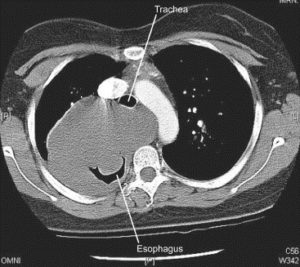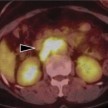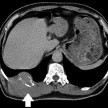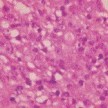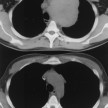Mediastinal Tumors
Mediastinal Tumors
The mediastinum (me′de-ah-sti′ num) is the chest cavity between the lungs that contains the heart, esophagus, trachea, and other structures. Mediastinal tumors are rare. They are usually diagnosed in patients age 30 to 50 years, but they can develop at any age.
Cells are the building blocks that make up the tissue and organs in your body. Old or damaged cells usually die, and new cells take their place. But sometimes, the process goes wrong or a single cell starts to grow uncontrollably until it becomes a mass of tissue called a tumor.
Sometimes, tumors are non-cancerous (benign) and are not life threatening; other times, the tumors are cancerous (malignant) and can invade surrounding tissues or spread to other areas of the body. Tumors can arise from any different type of cell, including bone, muscle, nerve cells, etc.

Types Of Mediastinal Tumors
Mediastinal tumors are rare. They are usually diagnosed in patients age 30 to 50 years, but they can develop at any age.
The location and type of mediastinal tumor vary according the age of the patient.
In children, the tumors usually are non-cancerous (benign), usually start in the nerves (neurogenic), and usually are in the back of the mediastinum. In adults, the tumors generally are cancerous (malignant) and usually are in the front of the mediastinum.
When a mediastinal tumor is cancerous, it usually is linked to lymphoma (cancer of the lymph nodes or lymph cells), germ cell tumors (cancers of testicular or ovarian type cells), or thymoma (a tumor of a normal mediastinal gland).
Causes And Symptoms Of Mediastinal Tumors
- Chest Pain
- Cough
- Hoarseness
- Shortness Of Breath
- Unexplained Weight Loss
The causes of mediastinal tumors differ based on the type of tumor and its location within the mediastinum.
Almost half of mediastinal tumors cause no symptoms and are found on an x-ray for another reason.
Symptoms that do occur generally relate to pressure the tumor may have on other parts of the body. Symptoms may include chest pain, cough, fever, hoarseness, shortness of breath, unexplained weight loss, chills, and night sweats.
Treatment varies depending on the type of mediastinal tumor and symptoms.
Diagnosis And Treatment Options
Tests that are most often used to evaluate mediastinal tumors are chest x-ray, computed tomography (CT) scan, or magnetic resonance images (MRI).
CT scan showing a large mediastinal mass
Blood tests may be helpful in determining the type of tumor. Tissue sampling may involve needle biopsies, mediastinoscopy procedures with biopsy, or complete resection (removal) of the lesion by minimally invasive approach or sternotomy.
Left untreated, mediastinal tumors may grow larger and can cause spinal cord compression or spread to nearby structures, such as the heart. If surgery is required, the procedure will be performed by a cardiothoracic surgeon.
Neurogenic Tumors
Neurogenic tumors usually are treated with surgery
Lymphomas
Lymphomas usually are treated with chemotherapy and may be followed by radiation
Germ Cell Tumors
Germ cell tumors usually are treated with chemotherapy
Thymomas
Thymomas or thymic cancers usually are treated with surgery (minimally invasive surgery, sternotomy, orthoracotomy) and may include radiation or chemotherapy
As with any surgery or procedure, there are risks involved.
Recovery
Minimally invasive procedures, such as thoracoscopy, may offer decreased postoperative pain, shorter hospital stay, and a reduced risk of infection.
Talk with your doctor about the option that may be right for you.

